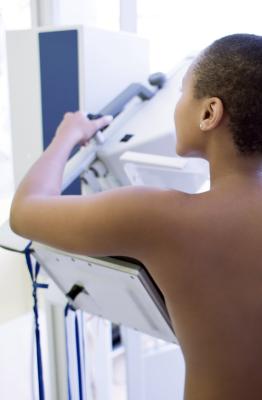
Getty Images
May 25, 2022 — Prolonged delays in breast cancer screening related to the COVID-19 pandemic have led to delayed diagnosis, poor health outcomes, and an increase in disparities. To address this, Mount Sinai Health System has launched “Mammogram May” to empower women to take charge of their breast health by scheduling an annual mammogram.
The goals of the campaign are to raise awareness of the importance of mammography in early breast cancer detection and treatment, and to address a decline in breast screenings worsened by the pandemic. Mount Sinai, one of the largest academic medical systems in the New York metro area, kicked off the campaign with the help of iHeartRadio DJ Shelli Sonstein on Sunday, May 22.
Breast cancer is the second leading cause of cancer death among women, and one in eight are expected to develop the disease at some point in their lives. Regular mammograms are vital to the early detection of breast cancer, especially when there are no physical symptoms. Data published last year in the Journal of the National Cancer Institute indicate an increase in mammogram bookings since a near-complete halt in March 2020 but it is unclear whether the rates have returned to pre-pandemic levels. Meanwhile, bookings among Asian and Hispanic women remain low.
“Our goal is to save lives, and this campaign will provide important messages and reminders to women: don’t put your health on hold, and take charge of your breast health,” said Elisa R. Port, MD, Chief of Breast Surgery and Director of the Dubin Breast Center at The Tisch Cancer Institute at Mount Sinai. “We know early detection is a powerful tool to prevent advanced disease and death, and we hope all women and those who love them will be empowered to put their health first. Mammogram May is the start of a year-long effort to change behaviors and increase awareness. Every month after May leading up to Breast Cancer Awareness Month [in October], we will share health tips and reminders to schedule your mammograms. We hope other organizations will join us in this effort.”
The Dubin Breast Center offers integrated, compassionate care for every phase of breast health, from prevention and diagnostics to surgery and post-treatment support. Using advanced diagnostic technology such as 3D mammography, a low-dose digital approach, Mount Sinai radiologists are able to achieve better imaging and thus detection of breast cancer than using traditional mammography. Mount Sinai radiologists also use additional diagnostic technologies such as breast magnetic resonance imaging and image-guided biopsies, when needed, for successful detection. Therapeutic approaches are customized for each patient based on the specific characteristics of the cancer, risk factors, and personal preferences.
Mount Sinai is also addressing mammogram awareness and access to screening through the Mount Sinai Mammo Van, a mobile mammography program that is bringing 3D mammography to women ages 40 to 75 in all five New York City boroughs each month. The unit’s next stop is at a Harlem health fair at 2239 Adam Clayton Powell Jr. Blvd. on Tuesday, May 24, from 11 am to 3 pm To learn about screening events in your community, visit https://www.mountsinai.org/care/radiology/services/mobile-mammography/screening-events.
The Dubin Breast Center will host its annual Fact vs. Fiction Luncheon and Symposium at The Harmonie Club, 4 East 60th Street, on Wednesday, June 1, from 12:30 to 2:30 pm. The event will be moderated by Dr. Port and will bring together thought leaders and experts in women’s health from across the Mount Sinai Health System.
For more information: http://www.mountsinai.org/mammogrammay
Related COVID Content:
COVID-19 Fallout May Lead to More Cancer Deaths
Kawasaki-like Inflammatory Disease Affects Children With COVID-19
FDA Adds Myocarditis Warning to COVID mRNA Vaccine Clinician Fact Sheets
CMS Now Requires COVID-19 Vaccinations for Healthcare Workers by January 4
Cardiac MRI of Myocarditis After COVID-19 Vaccination in Adolescents
Small Number of Patients Have Myocarditis-like Illness After COVID-19 Vaccination
Overview of Myocarditis Cases Caused by the COVID-19 Vaccine
Case Study Describes One of the First U.S. Cases of MIS-C
NIH-funded Project Wants to Identify Children at Risk for MIS-C From COVID-19


 July 29, 2024
July 29, 2024 








